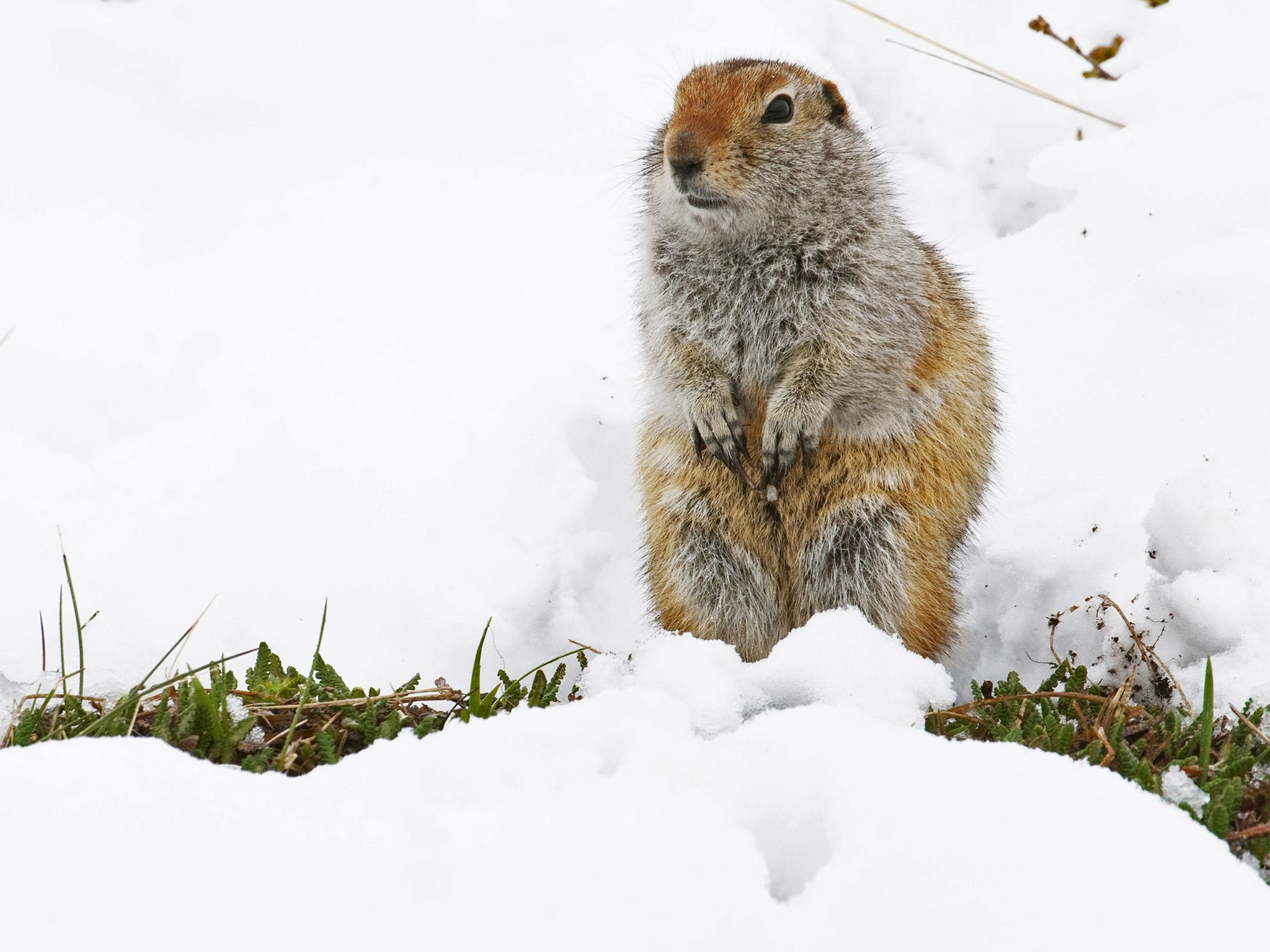Male squirrels caught napping in new study that finds their female counterparts do most of the work
The males may spend time above ground ‘simply to loaf or bask in the sun’

The males appear to spend hours loafing around in the sun, while the females rush about, gathering supplies and looking after the kids.
Try as you might, it’s hard not to draw comparisons between a new study about the lives of Arctic ground squirrels and human beings.
Researchers fitted tracking devices to the squirrels to monitor their activity and found that the females tended to be significantly more active than the males – although the squirrel with the highest average activity level was male.
But he appears to have been very much out of step with most of his male friends, who were about half as energetic.
Writing in the Royal Society Open Science journal, the US researchers said: “For much of our study, we found that both sexes spent similar amounts of time above ground, but females were consistently more active.
“It is not clear what [the males] are doing while above ground … it is possible that time above ground serves some sort of social function, such as the establishment and/or persistence of territories.
“The additional time spent above ground may be simply to loaf or bask in the sun. In small mammals, basking behaviour has been commonly reported as a means of passive rewarming from torpor.”
One reason for the relative inactivity of the males is that during the period studied the females were making milk to feed their young, so they needed to eat more.
“The difference between the sexes … may indicate that males are using risk-aversive behaviours to a greater degree than females during the interval in which their energetic demand is low,” the researchers wrote.
“There is widespread evidence in ungulates [such as deer, pigs and goats] that males will have higher vigilance at the expense of reduced foraging effort relative to females during lactation.”
Join our commenting forum
Join thought-provoking conversations, follow other Independent readers and see their replies
Comments
Bookmark popover
Removed from bookmarks